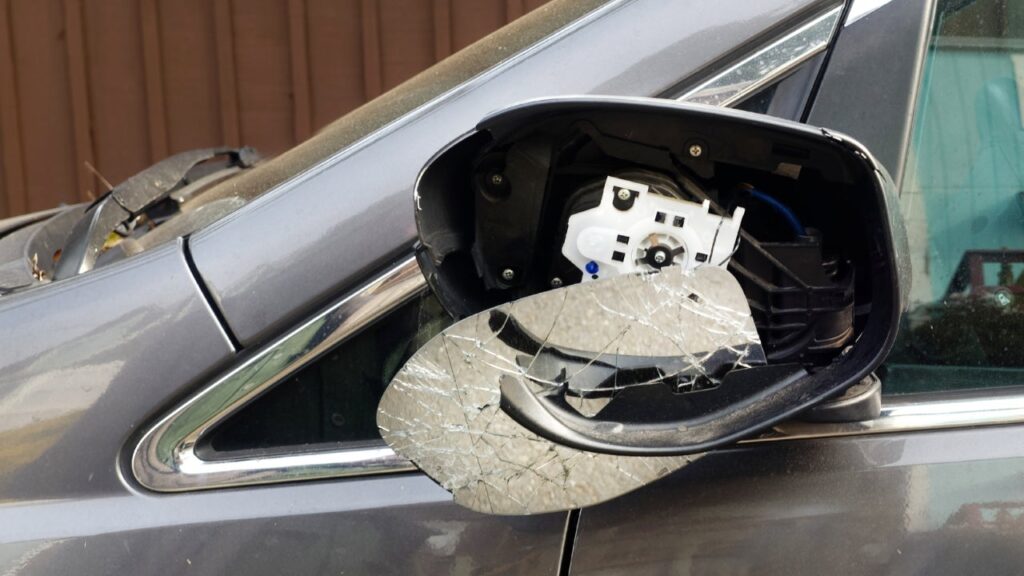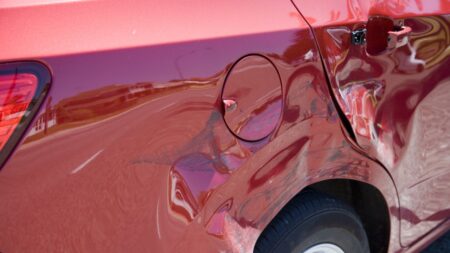It’s never a good thing to be the victim of a hit-and-run. Illinois drivers who have had this experience know that it can cause property damage or injuries, and if the perpetrator leaves the scene without exchanging information, there can be limited options for financial compensation. Leaving the scene of an accident is illegal in Illinois, and if you do so, your options are also limited: if you are found, you may face fines, license suspension and even jail time. Bankrate’s insurance editorial team carefully reviewed laws and regulations in the Land of Lincoln to help you know the best actions to take if you are involved in a hit-and-run accident.
Hit-and-runs in Illinois
According to the National Highway Traffic Safety Administration (NHTSA), serious hit-and-run accidents may be increasing. In 2022, the latest year for which records exist, there were 2,932 fatalities linked to hit-and-run accidents. This is an increase of 0.5 percent over the previous year. Although hit-and-run data for Illinois is not available, the state has implemented laws to deter individuals from leaving the scene of an accident.
Illinois hit-and-run laws
Illinois law regarding hit-and-run accidents requires that a driver who is involved in an accident causing bodily injury or property damage do the following:
- Stop the vehicle at the scene of the accident or as close to it as possible.
- Exchange their name, address, VIN and driver’s license information with any other drivers involved in the accident.
- Exchange insurance policy information, including company name, policy number and telephone number of the company.
- Provide assistance to any persons injured in the accident.
The penalties for a hit and run in Illinois vary depending upon the severity of injuries and circumstances of the accident.
- Accidents with an unattended vehicle: If you don’t stop and leave your information on an unattended vehicle you hit, this is a Class A misdemeanor with penalties that could include up to a year in jail and a potential fine of up to $2,500 plus court assessments.
- Accidents causing only property damage: If you leave the scene in this case it is also a Class A misdemeanor with the same potential penalties. If damage exceeds $1,000, your driver’s license could be suspended for one year.
- Accidents causing injury: Fleeing the scene in this case is a Class 4 felony. The penalties include imprisonment between one to three years and fines up to $25,000. Your license may also be revoked. If you fail to report the accident to the police within 30 minutes, you graduate to a Class 2 felony. Penalties include imprisonment of 3-7 years, a fine up to $25,000 and revocation of your license.
- Accidents causing death: If you fail to stop for an accident that results in a death, you are also guilty of a Class 4 felony. The penalties are the same as accidents causing injury but, in addition, if you do not report the accident to law enforcement, you can be found guilty of a Class 1 felony and the penalties include imprisonment from four to fifteen years, a fine up to $25,000 and the revocation of your driver’s license.
How hit-and-runs impact car insurance rates in Illinois
If you are found guilty of a hit-and-run in Illinois, you are likely to pay more than the average car insurance premium. A driver with a clean record in the state pays an average of $679 for minimum coverage and $2,303 for a full coverage policy. Your rate increases by an average of 45 percent after an accident to $3,345. Keep in mind that your own rate is likely to differ from the average and could even be higher.
You may also be required to obtain an SR-22 certificate if you are in a hit-and-run accident in Illinois. This is a form that is sent by your insurer to the Illinois secretary of state indicating that you do have a car insurance policy that meets illinois’ minimum insurance requirements.
5 things to do after a hit-and-run in Illinois
If you are the innocent party in a hit-and-run accident, it can be helpful to review the steps you should take. Something you should not do is try to chase down the guilty driver. This is a job for the police, and you could risk endangering yourself if you attempt to follow them. Instead, move away from traffic, stay calm and consider the following steps:
- Assess injuries and call for help: determine as quickly as possible if either you or your passengers sustained any injuries. If so, contact 911. It’s best to err on the side of caution if you’re not sure—a person might experience an injury such as whiplash and not be immediately aware of it. Getting medical help as soon as possible can help make for a speedier recovery.
- Move out of traffic: If you are impeding the flow of traffic, and your car is drivable, move it off the road onto a verge or side road to avoid causing another accident and for your own safety. If your car is not drivable, contact roadside assistance for help moving it.
- Call the police: it’s a good idea to call the police even if damage seems minor. Having a written police report will help back up your insurance claim if you decide to submit one.
- Take photos: if you can do so without endangering yourself, take photos of your car and the location where the accident happened. If there are witnesses, ask them for their contact info. This can be helpful for your insurance company when they are determining the severity of the claim and any injuries or property damage.
- Contact your insurer: If you decide to file a claim, contact your insurance company. Often you can file a claim via its website, but it can be helpful to talk to an agent who can answer your questions and help you understand what your policy will cover.
Will insurance cover a hit-and-run?
Unfortunately, you may never be able to locate the driver who fled the scene even with the assistance of law enforcement. But your insurance policy may provide coverage for a hit-and-run accident in several ways in Illinois:
- Collision: Collision coverage is an important component of your policy because it may pay your costs to repair or replace your vehicle if it is damaged or totaled in the accident. You will need to pay the amount of any deductible out of your own pocket.
- Uninsured motorist (UM) coverage: A UM policy will provide coverage for bodily injury and property damage sustained by you and the passengers in your vehicle in the event that you never locate the other driver or he or she is uninsured.
- Medical payments: A medical payments policy in Illinois may pay the medical expenses for you and your passengers up to the policy limits. This is helpful if you cannot access the other driver’s insurance policy.
Frequently asked questions
Read the full article here
















